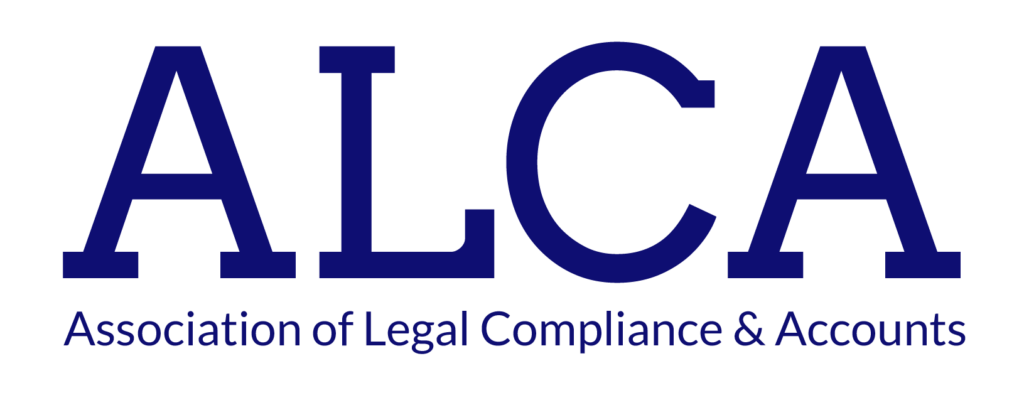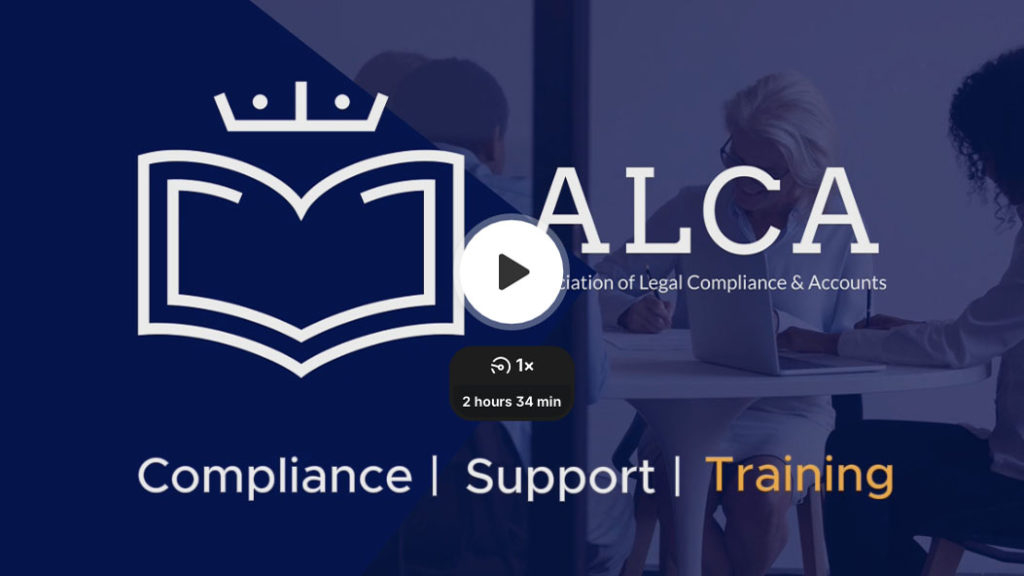Managing an SRA Forensic Investigation
Speaker: Dianne Brewer and Darren Whelan
June 13, 2025 | Last Updated on June 13, 2025
Who is this training for?
This on demand workshop is for Solicitors, Lawyers, Accountants, Compliance Officers, COFA’s, Legal Accounts Professionals, Legal Cashiers and anyone that has any involvement in working in legal finance and compliance.
Purpose of this training?
If you have received notice of an SRA Forensic Investigation, this is not a random exercise; the regulator has received information suggesting a serious or systemic issue at the firm.
This online workshop examines the factors that lead to the authorisation of a visit by the SRA, what to expect both before, during and after the investigation including guidance on how to manage and survive one.
- Introduction
- Monitoring and enforcement by the SRA – An overview
- The role of the firm’s COLP & COFA
Accountants Report
- The consequences of a qualified Accountant’s Report
- Minimising the chances of a visit by Forensic Investigations
SRA Accounts Rules
- Common compliance issues and pitfalls
Forensic Investigations
- What leads to a Forensic Investigation visit?
- Pre-inspection considerations
- What to expect during an investigation visit
- Post inspection process
Possible Disciplinary Outcomes
- Internal SRA sanctions
- Referral to the Solicitors Disciplinary Tribunal
Questions and Answers
#1. Is it permissible to issue the client with a bill of costs for an unpaid, not yet incurred, disbursement?
#2. You’re firm is acting for the executors in dealing with the administration of a deceased person’s estate and have sent a bill to the executors, together with the estate accounts for approval. You have asked the solicitor that is acting if you can transfer costs from the client account to the business account to discharge the bill in full. The solicitor has replied “no, as costs are not properly due”.
Is this a breach of SRA Accounts Rule 4.2?
#3. True or false: the SRA Accounts Rules set out certain requirements for law firm financial statements, such as how client account should be treated on a balance sheet
#4. Your firm is acting for a client in respect of a purchase of a residential property. The lawyer applies for an OS1 search direct from the Land Registry. The search result reveals that there has been alterations made to the register since the date the Official Copies were produced by way of a restriction. The lawyer advises the client on the results of the search.
When billed to the client, you would treat the cost as:
#5. Your firm prepare a lot of wills and fixed fee interviews as one-off transactions for clients. However, instead of opening an individual client ledger for each client, you have a general ledger on which you record the details of each client and the costs received.
Is this a breach of the SRA Accounts Rules?
#6. You have paid a disbursement from the business account and now have sufficient money held in the client account towards it.
Are you required to send the client a bill or other written notification of costs prior to transferring the money from the client account to the business account?
#7. Money received from the Legal Aid Agency on account of disbursements that are not yet incurred or paid is?
#8. If you receive notification of an SRA Forensic Investigation, does the SRA provide a reason?
#9. You have instructed an interpreter in order for your client to be able to communicate with you or to enable your client to understand Court proceedings. The cost of the interpreter is being passed on to the client. When billed, the cost is:
#10. I no longer need to consider time frames when transferring costs (fees and disbursements) to the business account?
Further Information
Practice notes and training sessions represent the Association of Legal Compliance & Accounts’ view of good practice in a particular area. They are not intended to be the only standard of good practice that firms can follow.
Practice notes and training sessions are not legal advice, and do not necessarily provide a defence to complaints of misconduct or poor service. While we have taken care to ensure that they are accurate, up to date and useful, we will not accept any legal liability in relation to them.
Frequently Asked Questions
Why On Demand
It’s really simple:
- Reduced cost
- Can be watched anywhere, anytime on any device – no travel time or cost
- Shorter and more efficient than face-to-face
- Recorded and can be replayed at your leisure
Online – the Cons
On Demand is not for everyone one. People learn differently and watching a pre-recorded training video can feel very lonely and isolated. It requires strong, self-motivation and time management skills. There is no opportunity to ask a question and receive an answer straight away as you would with an online or a face-to-face workshop.
No. In order to watch them, you must watch them whilst logged into the website.

